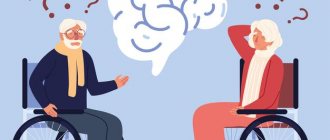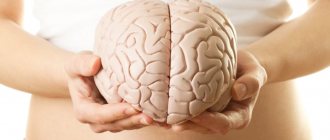According to various studies, climacteric neurosis accompanies the onset of menopause in 30% to 60% of women. Hormonal changes associated with this process affect not only the body, but also the mental state of the woman. The menopausal period can last for years, and the longer the symptoms of the accompanying neurotic disorder are ignored, the stronger they become and the deeper they take root in the psyche. This disorder, despite its natural causes, requires the same serious treatment as other mental disorders.
Symptoms of neurosis during menopause
The symptoms of menopausal neurosis are not much different from the symptoms of other types of neurosis. As a rule, among the manifestations of this disease, women note chronic fatigue and weakness, fatigue, irritability, and mood swings. In addition, vegetative-vascular disorders such as unstable blood pressure, cardiac arrhythmia, excessive sweating, and so on may develop. Of course, not all women experience menopause with pathology. The appearance of neurosis is also associated with the initial state of health of the patient’s body and psyche, as she felt before the onset of perimenopause. Thus, the possibility of developing climacteric neurosis can be detected even earlier than all the other symptoms of menopause appear.
We must not forget that a woman’s mental state can also be affected by the traumatic changes that occur to her body during menopause. Many women gain extra pounds during this period, which leads to changes in their figure, gray hair appears and skin elasticity decreases. All this is associated with changes in metabolism, but, of course, the woman sees these as signs of aging, which negatively affects her self-esteem. Changes also occur at the psychological level; a woman may become more sentimental, suspicious, emotionally unstable, her behavior sometimes becomes demonstrative and overly dramatic, and emotional reactions become inadequate.
Menopause: symptoms
The menopausal period occurs accompanied by certain symptoms, expressed to varying degrees: in some women the manifestations are stronger, in others they are weaker and even almost imperceptible. There are several groups of such signs:
- emotional and mental disorders – depression, irritability, anxiety, mood swings, tearfulness, sleep disorders, inattention, decreased sexual desire, fatigue, etc.;
- vegetative-vascular disorders: hot flashes to the face, heart pain, severe sweating, dizziness, numbness of the limbs, chills, headaches, decreased or increased blood pressure;
- disruption of the endocrine and metabolic systems - atherosclerosis, obesity, vascular and heart diseases, Alzheimer's disease, bone fragility - osteoporosis;
- problems with the genital organs - itching and burning in the vagina, discomfort during sexual intercourse due to its dryness, pain;
- urinary incontinence, frequent urination,
- the appearance of wrinkles, dry skin, brittle nails, hair loss,
The reason for such problems is the close relationship between the hormones produced by the ovaries and the functioning of all systems and organs of the female body - with a lack of the former, the functionality of the latter begins to fail.
The symptoms of menopause are most pronounced during the twelve months before menopause, then they decrease and, after a while, disappear altogether. This happens in almost 80% of women.
Features of menopausal neurosis
Although all women go through the natural process of menopause, for most it is a tragedy. They feel that with the loss of the opportunity to bear and give birth to children, their very presence in the family becomes unnecessary or unwanted. At this stage, some women begin to try to compensate for this feeling by taking increased care of their appearance, trying to look as young as possible. Experts believe that this reaction is essentially a replacement or protest against the natural aging processes of the body.
The opposite side of the coin is apathy. When a woman thinks that changes in appearance are inevitable, she becomes passive, loses interest in herself, her appearance and interests, her social activity sharply decreases, and instead there is an unhealthy attention to her own illnesses and ailments.
Also among neurotic disorders during premenopause: nervous and hysterical disorders, headaches and migraines, low mood, even depressive states, decreased ability to work, feelings of anxiety, fear and depression.
Sometimes the symptoms of menopause at first glance have nothing to do with it, which forces women to turn to other doctors. One of these characteristic signs is pain in the heart area.
For quite a long time, it was believed that a special role during the perimenopause period is played by a violation of hormonal function, namely a decrease in estrogen levels. Nowadays, research shows that it is not only this, but also primary age-related changes associated with the function of the hypothalamic centers.
Studies in which about 500 patients took part showed that in 15% of them the development of climacteric neurosis occurred during an absolutely normal course of the menstrual cycle, in 50% neurosis appeared when the cycle was disrupted, and in 33% climacteric neurosis began to appear even after complete menstruation. the onset of menopause. It is worth noting that the symptoms of neurosis associated with premenopause are varied and can stretch over a very long period of time. Sometimes the disorder lasts only a few months, and sometimes more than 15 years.
The fading of the ovaries brings with it a trail of changes in the female body. Menopause, or menopause. What every woman should know in order to enter this period as comfortably as possible.
We are talking with a gynecologist-endocrinologist at the Interdistrict Department of Family Health, Yulia Medvedeva.
- Yulia Gennadievna, the ovaries reduce the production of estrogen, but we say about this age “the woman’s berry again.” What good is it when this is the beginning of various problems?
— I wouldn’t say that there are no advantages. Age also has many advantages. A woman gains life experience, she looks at everyday troubles more calmly, and becomes wiser. Stage - this is how menopause is translated. We are simply moving to another level. But not all women have a negative experience of menopause; a certain percentage endure this period without pathological symptoms. They simply become amenorrheic. Apparently, these women are genetically programmed this way.
— Is the onset of menopause menopause?
— Menopause begins from the last menstruation and beyond. Menopause and menopause are synonyms.
How does menopause usually go? What is the woman experiencing?
— Menopause is a symptom complex that not only changes the female genital area, but also many other organs and systems. For example, if until the age of 40 a woman had no risk of myocardial infarction, now the risk increases significantly, and these diseases are more severe than in men. Immediately, as a rule, blood pressure rises and migraines occur. In women with low estrogen levels, the bone apparatus suffers: osteopenia develops, leaching of calcium from the bones. When we do densonometry at the age of 40-45, we see osteopenia in 70% of patients. Today it is osteopenia, and a year later osteoporosis, that is, the risks of fractures of the femoral neck and lumbar vertebrae increase. But the first thing that suffers, I repeat once again, is the cardiovascular system. As soon as estrogen levels drop, heart disease develops.
“Then every woman in our country would have a heart condition.”
— Our women are not examined. And after all, everyone has a different supply of estrogen, everything is individual. But the heart is the first to be hit; with the onset of menopause, the number of heart attacks increases significantly. Then there may be vegetative manifestations: hot flashes, fever. Menopause progresses in different directions. Some may experience hot flashes during a normal cycle, while others do not have periods, but do not have hot flashes. This is genetically determined. A woman can look at her mother or grandmother and expect the same in herself.
— If we talk about the naturalness of the process, but with the “treat” approach, this causes bewilderment. Is it necessary to treat what is natural?
- But there is a pathological menopause. It is called a “symptom of menopausal disorders,” that is, it has vegetative disorders and needs to be treated. But you should definitely check with a doctor, regardless of the presence of menopause symptoms.
— Why does the body react so sharply to a decrease in estrogen levels?
— Because throughout the body there are estrogen receptors that must receive this hormone. They are found in bones, joints, heart muscle, and blood vessels.
— They talk about the pathological and physiological course of menopause. What is the difference? And what is more natural: to experience a spectrum of vasomotor difficulties or to go through menopause unnoticed?
“I think it’s incorrect to ask that.”
- Why?
- Because it is genetically determined. How can we judge that one has crooked legs, the other has straight ones - which one is healthier and more genetically correct, if everyone in her family has crooked legs? All people are individual, and women cannot be approached with one standard. If she has vegetative symptoms, we must correct them. If they are not there, the woman will continue to live in peace, and we must examine her according to the standards and be calm if these indicators do not yet require correction. But examinations must be done annually. We cannot know what kind of health a woman will have next year.
- Let's be honest. When a woman comes to the gynecologist for MHT (menopausal hormone therapy), she is very often not prescribed any tests.
- How so? There is an order from the Ministry of Health - screening before prescribing HRT. There should be a mammogram with a shelf life of no more than a year, cytology with a shelf life of a year, biochemistry with the lipid spectrum of the blood, a coagulogram and blood insulin, it is advisable to look at it. This is what will determine whether hormone therapy is allowed. But if a woman does not really ask for hormonal drugs, then there is no need to persuade her, because the risk of negative manifestations from the female reproductive system for some is very high.
— There are studies that claim that hormone therapy during menopause in some cases increases the risk of cancer in women.
“But there are other studies, the statistics are still controversial. There is no clear data yet. But our Ministry of Health has included hereditary cancer in the list of contraindications. If a woman has a history of surgery for cervical cancer, or close relatives have had it, this is an absolute contraindication. No need to invent anything, we work according to orders.
— Does hormone therapy always solve problems?
- The doctor must decide this one-on-one. There is a whole range of contraindications to hormonal therapy.
- But in other cases, HRT solves the problems of women in menopause?
- Yes.
— How long can hormone therapy last without harm to health?
— This is all decided by the doctor during individual observation. The safe duration of use is considered to be 5 years. And then the cards will fall. Ideally, of course, the longer, the better, because you maintain youth. There are women who have been taking synthetic drugs for 7-8 years. And there are those in whom you see bad mastopathy, hyperplasia, which means you need to cancel it right away. That's what observation is for.
— How often should a woman undergoing MHT see a doctor?
- At the first appointment in a month and then once every six months.
— What is your opinion about the fact that hormone therapy should be started in advance, without waiting for the unpleasant manifestations of menopause?
- Now, according to the latest recommendations, only during the period when the last menstruation ends, and not earlier than a year later. It is hormonal therapy.
— What if a woman begins to experience negative feelings?
— Herbal medicines exist.
— They may not relieve symptoms or help the woman, but you do not recommend taking hormones, what should I do?
— We need to select herbal medicines; there is a wide range of them now. Someone will help.
— Are synthetic hormones and their plant forms, herbal medicine in the form of dietary supplements, equally effective? Are there any studies confirming the effectiveness of herbal remedies in menopause?
- These are phytoestrogens and it doesn’t matter what they are called. There are many studies that show their effectiveness. When they give lectures on menopause, no one calls them dietary supplements. Their effect is still hormone-like, but not all dietary supplements have such an effect. Phytoestrogens do not have the same obvious side effects as hormones. They will suit a wider range of women and are the place to start.
— If a woman is not worried about anything, is it really necessary to go to the gynecologist because her period is over?
— According to the orders, once a year a woman must come to the gynecologist, undergo cytology and have a mammogram or ultrasound of the mammary glands, depending on her age. But in general, people come to us mainly with complaints about pathological manifestations of perimenopause, and then we understand where to go next and how to help. As a rule, when the cycle is disrupted, their manifestations immediately begin. This happens simultaneously.
— Does this mean that from now on you can not use protection?
- No, it doesn’t mean that. A disruption of the cycle does not mean that independent ovulation cannot occur; contraception for women 45+ must be considered. The doctor picks her up.
- But can you live without hormone therapy?
- Can.
- Sometimes hormones are not allowed. What to do then?
— There are microdoses, but they, as a rule, do not remove hot flashes, they are only to maintain the cardiovascular system. And then there is a placebo effect, and the woman feels better. Often hot flashes subside over time.
— Give general advice to women who have entered or who are yet to enter the mature stage of life.
- Come and talk to the doctor. Everyone is individual, you can’t buy a drug like from a friend. Sometimes these symptoms mask other endocrine problems, such as thyroid disease. There are vegetative problems: memory loss, cycle disorders, so I prescribe TSH to my patients, and some are diagnosed with thyroid disease. Therefore, you cannot independently treat menopause with female hormones; it could be other endocrine diseases. Such cases happen in practice.
Interdistrict Family Health Department
Consultations, diagnosis and treatment for women in menopause.
Make an appointment by phone; 8 (3519) 34 - 04 - 23.
Address: Southern complex of the State Autonomous Institution "City Hospital No. 2", st. Truda, 36.
Cherepanova N.S., press service of the State Autonomous Institution "City Hospital No. 2 of Magnitogorsk"
Treatment of neurosis
As with all other mental illnesses, treatment of menopausal neurosis should only occur under the guidance of a doctor, since in order to prescribe the most effective therapy, it is necessary to take into account all the features of the patient’s symptoms. First of all, hormonal drugs are prescribed, the purpose of which is to equalize a woman’s hormonal levels, which is achieved even with low estrogen levels. It is much more difficult to get rid of vegetative-vascular disorders; they can manifest themselves over several years. Working with the psycho-emotional state falls on the shoulders of a psychotherapist and psychologist, who can not only prescribe different types of therapy, but also prescribe treatment with pharmaceuticals. Often women with this neurosis are prescribed antidepressants or tranquilizers.
By completing all the appointments and undergoing therapy, a woman can improve her emotional state and begin to adequately perceive the changes happening to her.
In therapeutic work, it is important to rid the patient of stereotypes fixed in the mind through cultural images and public opinion. With the right, competent approach from a psychotherapist, a woman can enter this stage of her life while remaining happy and confident! In contact with
Non-hormonal drug therapy
Non-hormonal drugs for menopause (menopausal syndrome) are used quite widely, since the range of symptoms can be quite diverse, and hormonal therapy is resorted to only if other means do not give the desired effect, and only if there are no contraindications.
Non-hormonal drugs can be represented by drugs of various groups.
- Vitamins A, D, E, C, B vitamins.
Vitamins are important as general strengthening agents. Vitamin A helps fight degenerative processes in the skin and mucous membranes, and visual impairment. Vitamin B6 in combination with magnesium helps mitigate the neurovascular manifestations of menopausal syndrome. Vitamin E has a beneficial effect on the reproductive sphere as a whole. Vitamin D3 combined with calcium will slow down bone loss. You should definitely consult your doctor about the use of vitamin preparations, despite their apparent harmlessness; it is also important to strictly adhere to the prescribed dosage. - Products based on medicinal plants.
To improve well-being, various herbal infusions, herbal teas and herbal preparations with calming, hypotensive, and diuretic effects are widely used. Before using medicinal plants, it is advisable to consult a herbalist. - Sedatives and hypnotics.
You should not start immediately with strong drugs, especially sleeping pills, to avoid the development of addiction. During menopause, glycine and various homeopathic medications are widely used to reduce anxiety and irritability. - Symptomatic remedies.
The action of these drugs is aimed at eliminating individual symptoms: headaches, itching, swelling, palpitations and others. Depending on the nature of the symptoms, the prescription of such drugs should be consulted with a physician, gynecologist, cardiologist, urologist or other specialist. - Homeopathic remedies.
Homeopathy for menopause has a fairly pronounced effect, especially in mild and moderate forms of menopause syndrome. Homeopathic remedies are prepared from natural raw materials, using a special technology of multiple dilutions.It is very important to take such medications regularly, in the recommended dose, following all the specialist’s instructions (for example, do not take the medicine with tea, exclude alcohol, coffee, spicy foods, products with mint, etc.).
Homeopathic medicines correct not only hormonal imbalances, but also have an effect on the body as a whole. They help reduce the frequency and intensity of hot flashes, reduce irritability, relieve headaches, and get rid of insomnia and drowsiness during menopause. However, they extremely rarely cause allergies and almost never have side effects.
However, it is difficult to predict how much the drug will help alleviate the symptoms of menopause in a particular woman. Typically, it may take at least 2-3 weeks to evaluate the effectiveness of the homeopathic remedy.
If no improvement is noted during this period, the product can be replaced. It will be better if a specialist recommends homeopathic medicines, since an experienced homeopath is able to predict the response of a particular patient’s body to the chosen remedy.
- Phytoestrogens.
Many of the medicines based on medicinal plants, as well as a number of biologically active food additives (BAA), contain phytoestrogens. This is the name given to substances of plant origin that are similar in chemical composition and properties to female sex hormones. They are intended to mitigate the manifestations of menopausal syndrome. Phytoestrogens during menopause often have a positive effect, only their effect is milder than that of hormonal drugs. Preparations based on phytoestrogens do not have many of the side effects characteristic of drugs used for replacement therapy. If the drug is not a dietary supplement, but a medicine, this means that its effect will occur faster and will be more pronounced.
Hormone replacement therapy for menopause
If the body reacts so violently to a drop in the level of sex hormones that it is not possible to cope with pathological symptoms using non-hormonal means, the doctor may recommend hormone replacement therapy. The missing hormones in this case will come from outside. The following principles are observed:
- only analogues of natural hormones are used;
- Estrogens during menopause are prescribed in low doses;
- if there are nodules in the mammary gland, liver diseases, disorders of the blood coagulation system, diabetes mellitus and tumors of any origin, hormone replacement therapy is not carried out;
- the choice of drugs for hormonal therapy and determining its duration is the prerogative of the doctor, since only a specialist will be able to weigh the pros and cons of this treatment tactic for a particular woman.
INITIAL CONSULTATION
from 2,400 rub.










